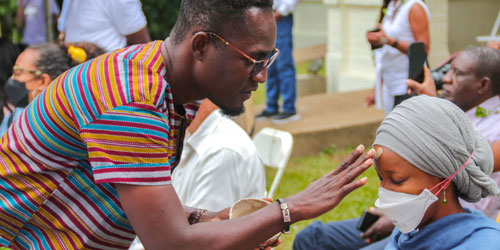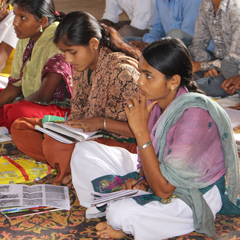-
Grants
3
-
Total Awarded
$800,000
-
Years
2013 - 2021
-
Categories
Grants
The American India Foundation (AIF) is a nonprofit organization that seeks to improve the lives of India’s underprivileged, with a special focus on women, children, and youth. Working closely with communities and institutions of local governance, AIF develops and tests innovative solutions to create and scale sustainable impact. This award supports AIF to revive livelihoods of COVID-affected street vendors in urban India by connecting them to new markets and to concessional capital sources for their trade.
Founded in 2001, the American India Foundation (AIF) is one of the largest US-based nonprofit organizations focused exclusively on India. AIF is committed to catalyzing social and economic change in India through high-impact interventions in education, livelihoods, public health, and leadership development. AIF previously received MacArthur support through the Partnership to Strengthen Innovation and Practice in Secondary Education (PSIPSE) collaborative to pilot a model to increase demand for and promote transition to secondary education. Placing a special emphasis on reaching girls, the project addressed the multiple barriers that keep young people from attending secondary school. This final tie-off award to AIF will assist the organization to consolidate the learnings from the first phase of the project and enable AIF to expand the delivery of the most-promising approaches in the states of Gujarat and Odisha, where the grantee already has long-term projects focused on promoting primary education.
Building on previous work done at the primary level, the American India Foundation Trust will expand its demand-generation and support model to focus on secondary schooling. Placing a special emphasis on reaching girls, the LAMP Pathways (LP) project aims to address school dropout, cultural barriers, and secondary school access for children of migrant families from the highly marginalized, migration-prone Kutch district in Gujarat. By increasing demand for secondary education among migrant communities and enabling more students, especially girls, to transition from primary to secondary school the project aims to provide families and children with life and employment options that are not determined by distress migration.





